Carrier oils have the potential to be one of the most sustainable skincare ingredients available to us when farmed and harvested responsibly.
But we can go even beyond sustainability to the idea of zero waste and upcycled ingredients.
The juice and food industries use large amounts of fruits and berries to make juices, jams, canned fruit and all the other prepared foods on the grocery store shelves.
When the fruits and berries are processed, a large amount of seeds are left behind.
And all these seeds can be pressed for their anti-oxidant rich oils trapped inside.
Oils like strawberry seed oil, kiwi seed oil, fig seed oil and raspberry seed oil would be unattainable if not for resourceful people sourcing, separating and pressing these discarded seeds.
Kiwi seeds are tiny, and it takes A LOT of seeds to make a small amount of oil. But when the seeds would otherwise be thrown away, suddenly kiwi seed oil becomes accessible and sustainable.
Upcycled ingredients, zero waste and sustainability are increasingly becoming part of the conversation around skincare and formulating.
Here are 20 carrier oils you can find pressed from from seeds discarded by the food industries.
Raspberry seed oil
Raspberry seed oil is light and fast absorbing. It is a nourishing skincare oil you can use alone as a facial oil or in face and body oil blends.
Dominant fatty acid: Linoleic acid
Guava seed oil
Guava seed oil is toning on the skin and can help minimize pores. It is a light feeling oil with a mild fruity scent.
Dominant fatty acid: Linoleic acid
Watermelon seed oil
A light, fast absorbing oil that is good for normal to oily and blemish prone skin types.
Dominant fatty acid: Linoleic acid
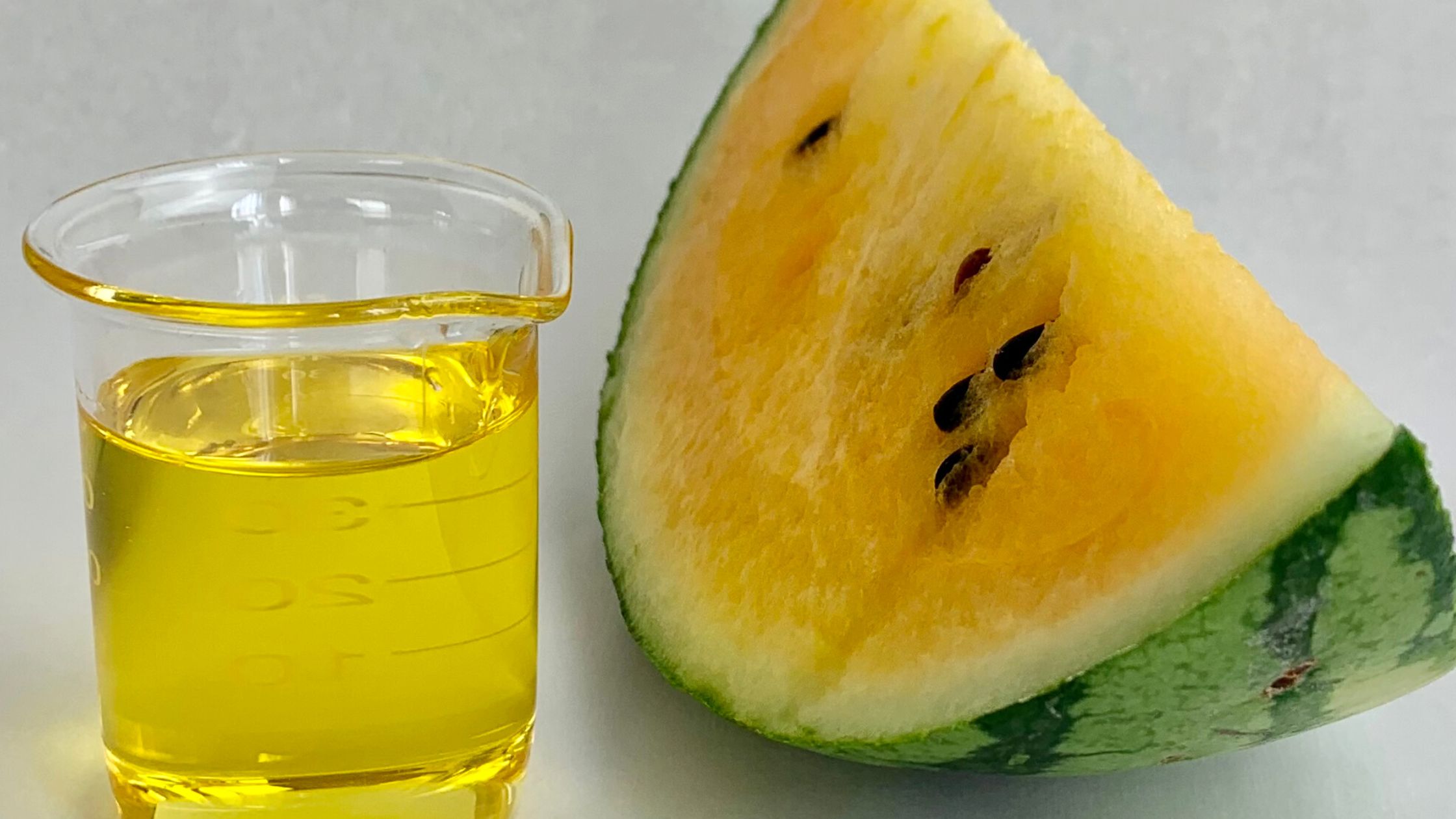
Pomegranate seed oil
Pomegranate seed oil is a thick viscous oil and highly nourishing for the skin. It is often used in formulas for mature and dry skin to repair and protect. Best used mixed with other carrier oils as it is thick and heavy feeling on the skin.
Dominant fatty acid: Punicic acid
Tomato seed oil
Tomato seed oil is typically orange to reddish in color. It has a light skin feel and a low percentage of oleic acid. Good for compromised and damaged skin.
Dominant fatty acid: Linoleic acid
Peach kernel oil
A mild protective oil with a soft skin feel. Good as a base for skincare and as a carrier oil for essential oil blends.
Dominant fatty acid: Oleic acid
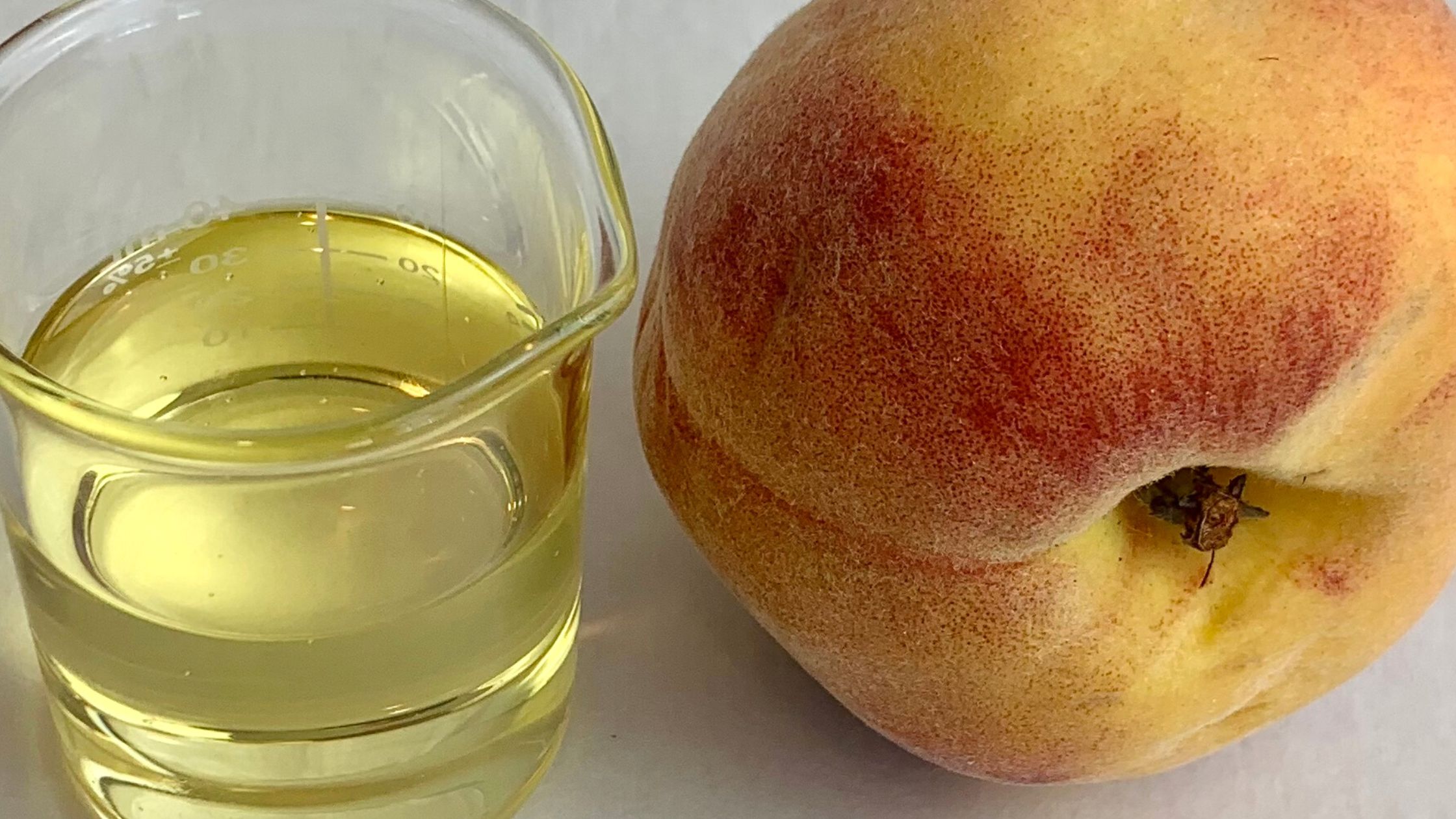
Apricot kernel oil
A mild oil similar to sweet almond oil, apricot oil is a good base for body oils or as a carrier oil for essential oils.
Dominant fatty acid: Oleic acid
Cucumber seed oil
A light oil good as a base and for skincare formulated to help with blemishes and inflammation. Depending on the supplier and refining level, sent ranges from neutral to a pleasant cucumber.
Dominant at fatty acid: Linoleic acid
Grapeseed oil
Grapeseed oil is a common oil often easy to find at the grocery store. It is a good base oil with a light skin feel. Some grapeseed oils are being pressed from wine grapes such as chardonnay, cabernet, etc.
Dominant fatty acid: Linoleic acid
Cherry kernel oil
Cherry kernel oil helps improve skin elasticity and encourages skin regeneration. In the unsaponifiable portion you'll find pro-vitamin A and carotenoids.
Dominant fatty acid: Linoleic acid
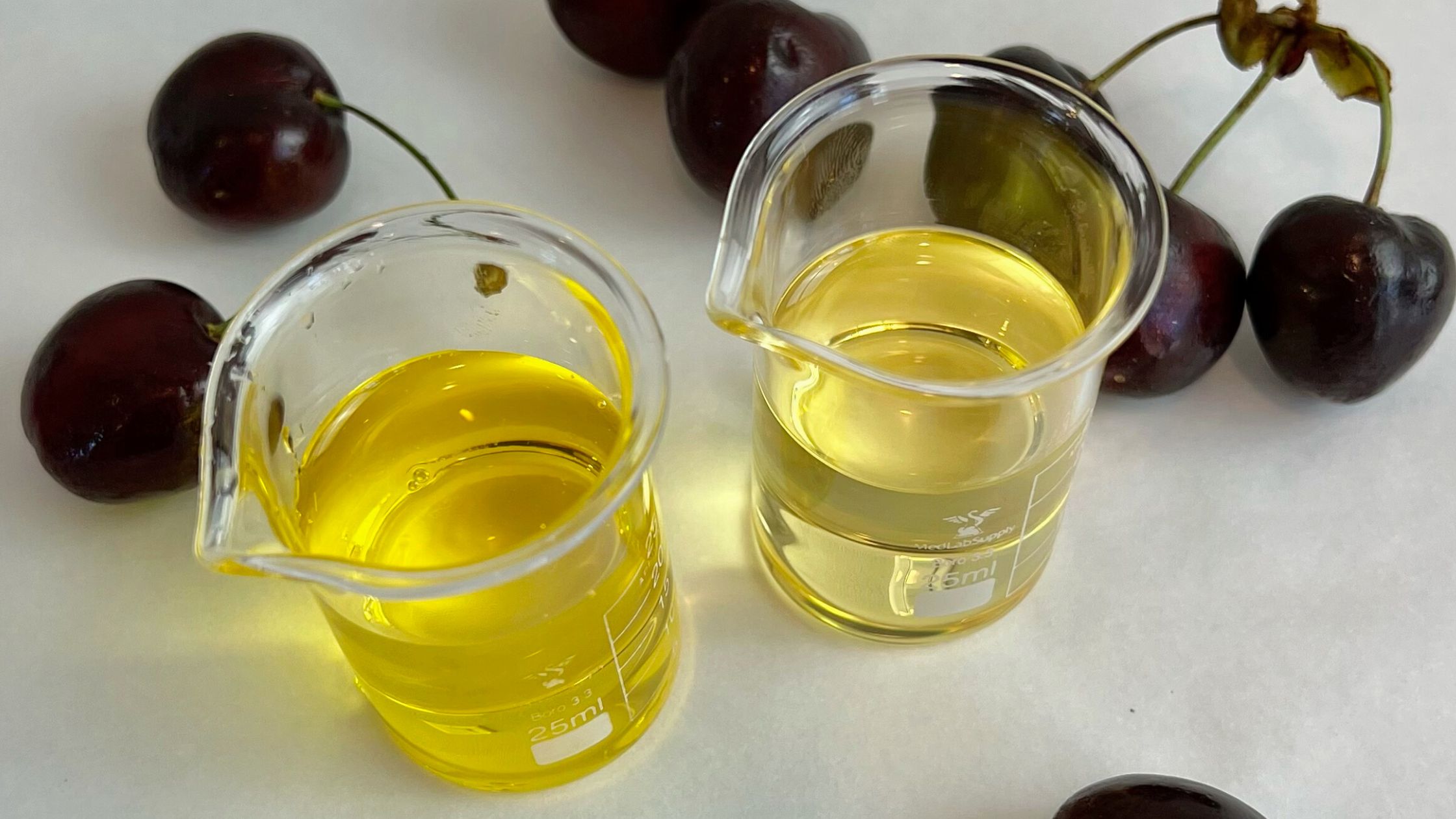
Plum kernel oil
Plum kernel oil is protective and excellent for skincare on its own or in a formula or blend. It is similar to almond oil and peach kernel oil. Unrefined plum kernel oil can have a distinct bitter almond or marzipan scent.
Dominant fatty acid: Oleic acid
Apple seed oil
One of the newer carrier oils on the market, apple seed oil is still not readily available. When you can find it however, it is a lovely light oil with a slight apple scent. In skincare formulas it helps calm inflammation.
Dominant fatty acid: Linoleic acid
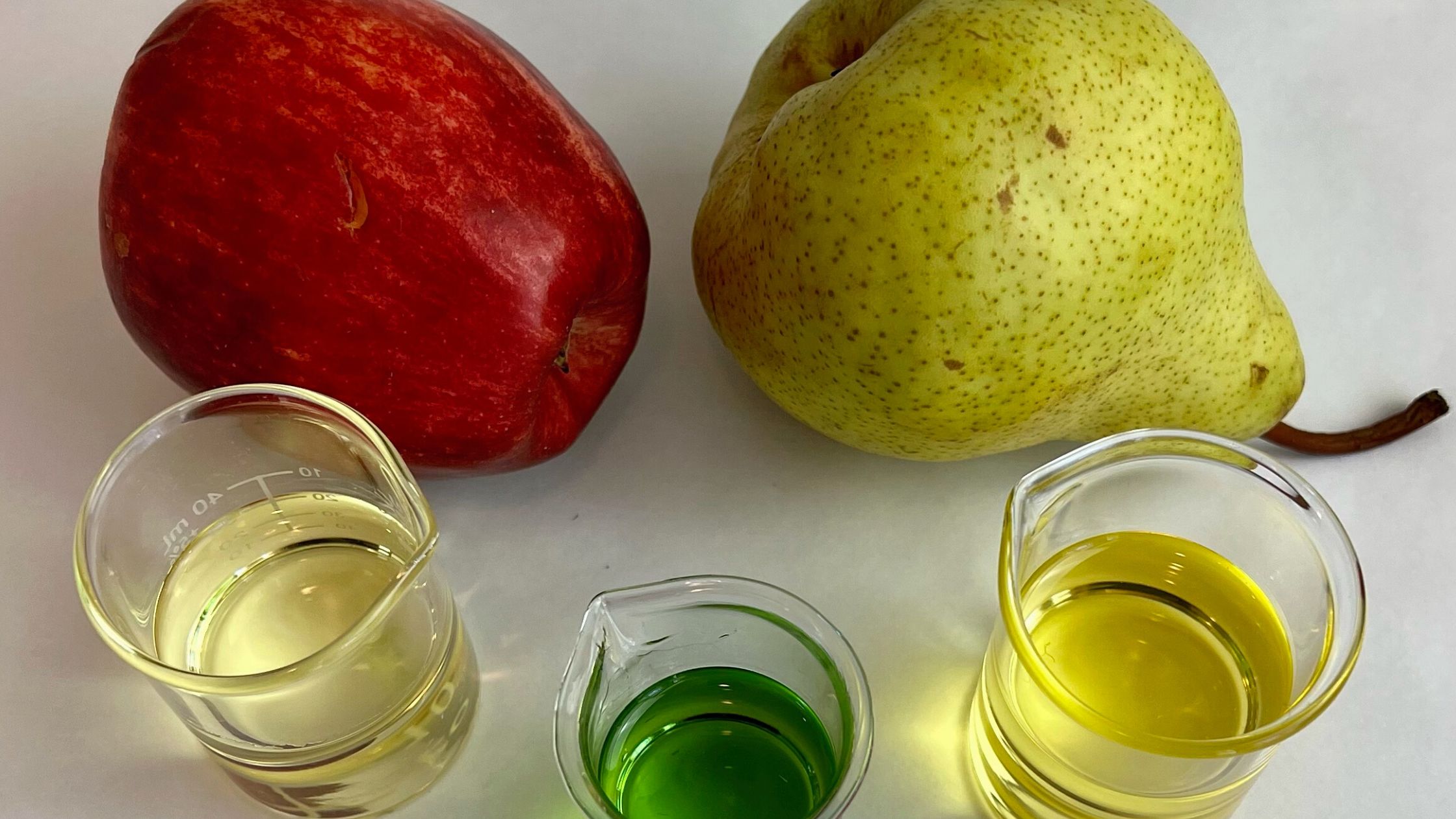
Pear seed oil
Like apple seed oil, pear seed oil is still new and not commonly available. It is a good skincare oil especially as a facial oil or in a facial oil formula. It has anti-inflammatory properties and the unsaponifiable portion contains vitamin E.
Dominant fatty acid: Linoleic Acid
Blackberry seed oil
A light oil ideal for adding to facial serums. Blackberry seed oil contains both essential fatty acids and vitamin E in the unsaponifiable portion.
Dominant fatty acid: Linoleic acid
Strawberry seed oil
Strawberry seed oil is light feel on the skin and contains both essential fatty acids. Unrefined versions are pale green in color. This oil is new to the market and still difficult to source and expensive but makes a lovely addition to facial oils and oil serums when you can find it.
Dominant fatty acid: Linoleic acid
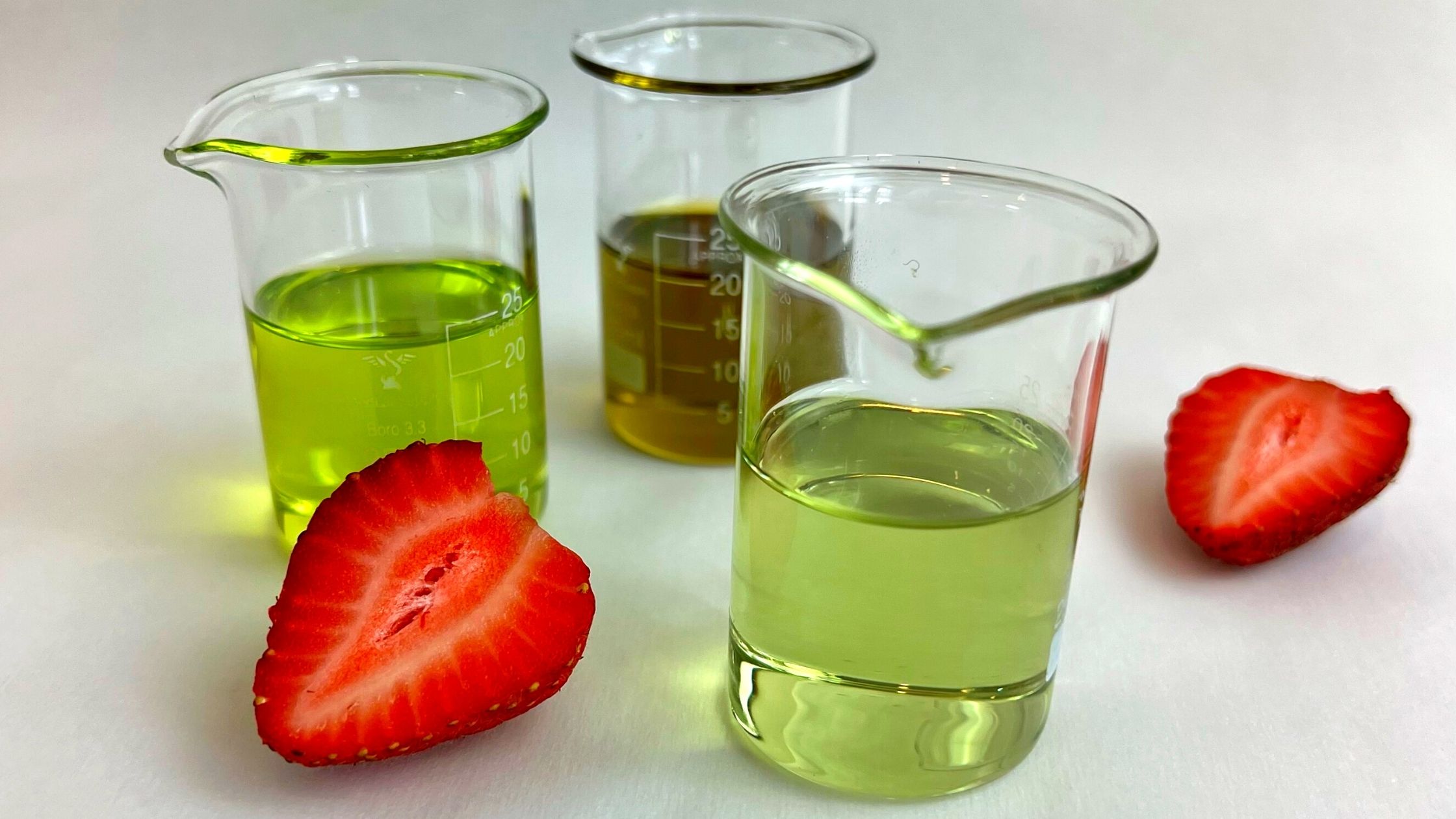
Cranberry seed oil
An excellent all around skincare oil, cranberry seed oil is balanced and good for all skin types. Use it alone as a facial oil or in serums and oil formulations.
Dominant fatty acid: Linoleic acid
Blueberry seed oil
Similar to cranberry seed oil with a balanced fatty acid profile, blueberry seed oil is a good all around skincare oil rich in carotenoids and vitamin E. Color ranges from pale yellow to bright green and even purple depending on how refined the oil is.
Dominant fatty acid: Linoleic acid
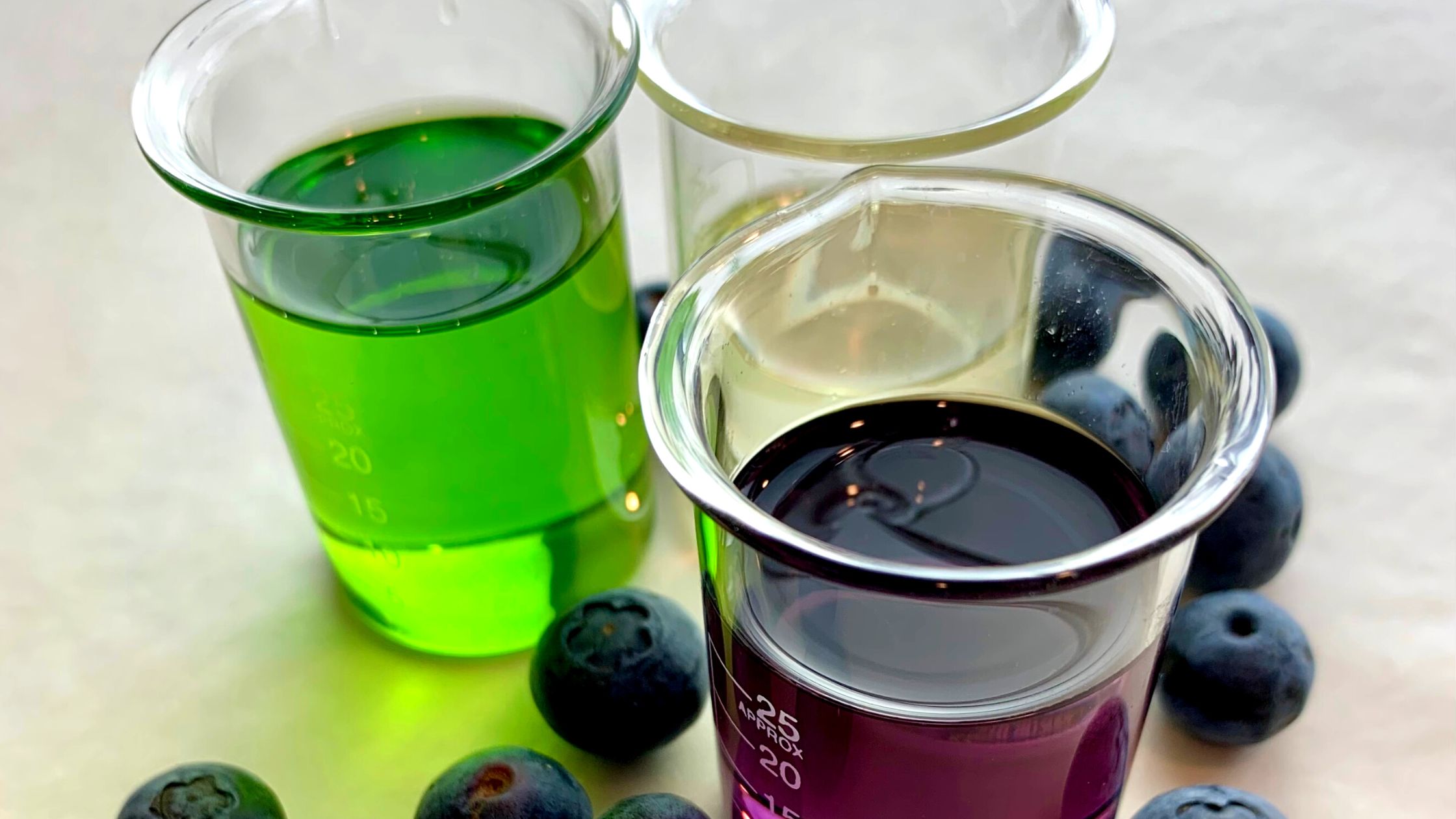
Kiwi seed oil
One of the oils with very large percentage of LNA, a-Linolenic acid. Non oily and absorbent, kiwi seed oil is light on the skin. This oils is not always easy to find.
Dominant fatty acid: Alpha-linolenic acid
Pumpkin seed oil
Unrefined pumpkin seed oil can be dark green to brown in color. It is rich in unsaponifiable compounds including vitamins, minerals including zinc and copper. A light oil that is nourishing to the skin.
Dominant fatty acid: Linoleic acid
Fig seed oil
The fatty acid profile of fig seed oils vary depending on the variety of fig the seeds come from. All fig seed oil varieties are high in omega 3 fatty acids and minerals and anti-oxidants. Fig seed oil is still new to the market and not always easy to find but it is a lovely oil when you can source it.
Dominant fatty acid: α-linolenic
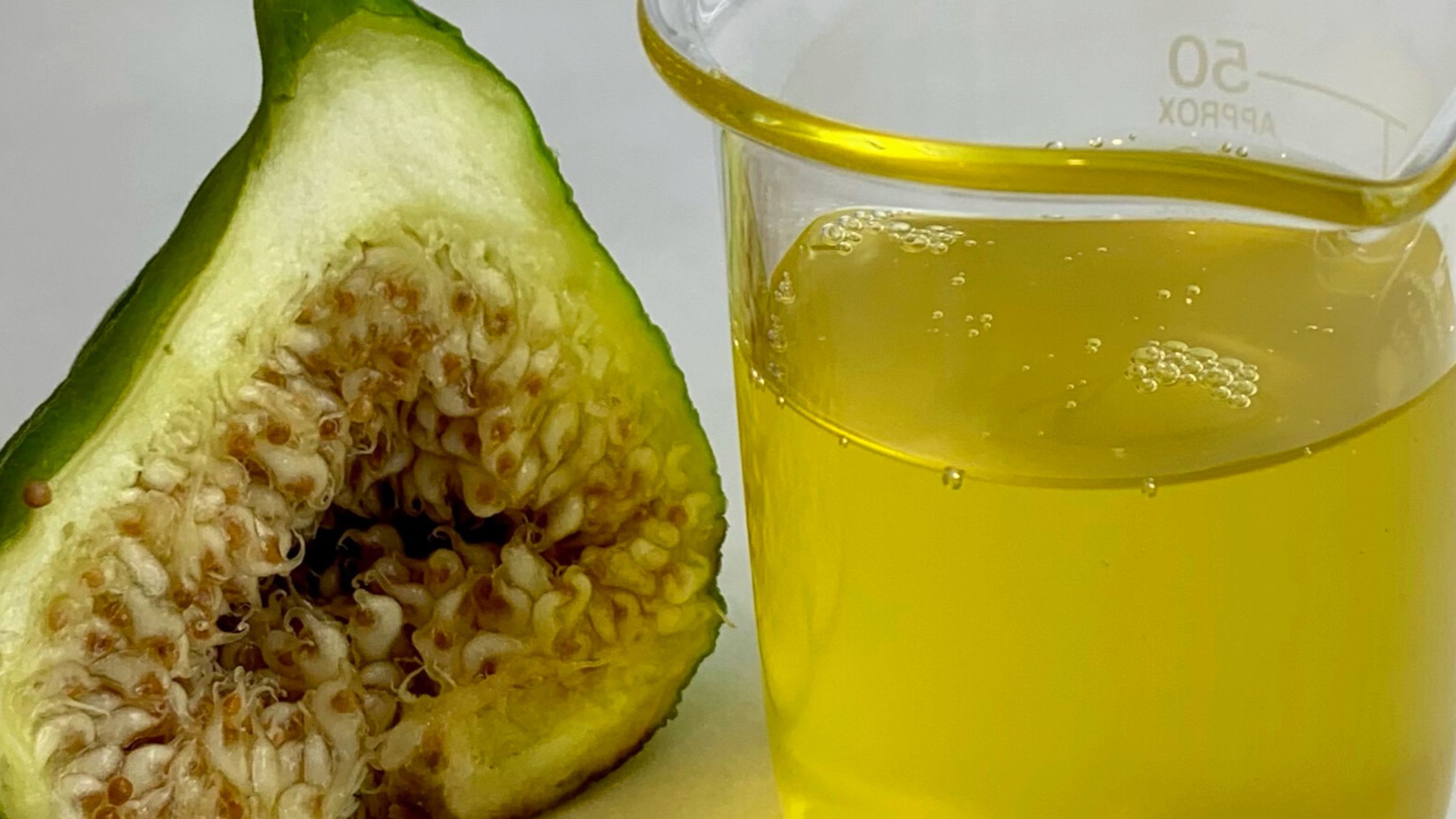
In theory, any food products where seeds are removed and discarded has the potential to fall into this category of upcycled skincare oils .
Many, if not most of the carrier oils and lipid plant oils are sustainable when sourced and grown responsibly, even if they do not fall into the upcycled, zero waste category here.
Most of the grain oils would fall into this category, fruit trees that produce abundant harvest like olive, avocado, pistachio, coconut, mango and so many more.
Sourcing and sustainability is important, and getting to know your suppliers is key to forming trusting, lasting relationships that support people and the environment.
Are any of the oils on this list new to you? leave a comment or a question below.
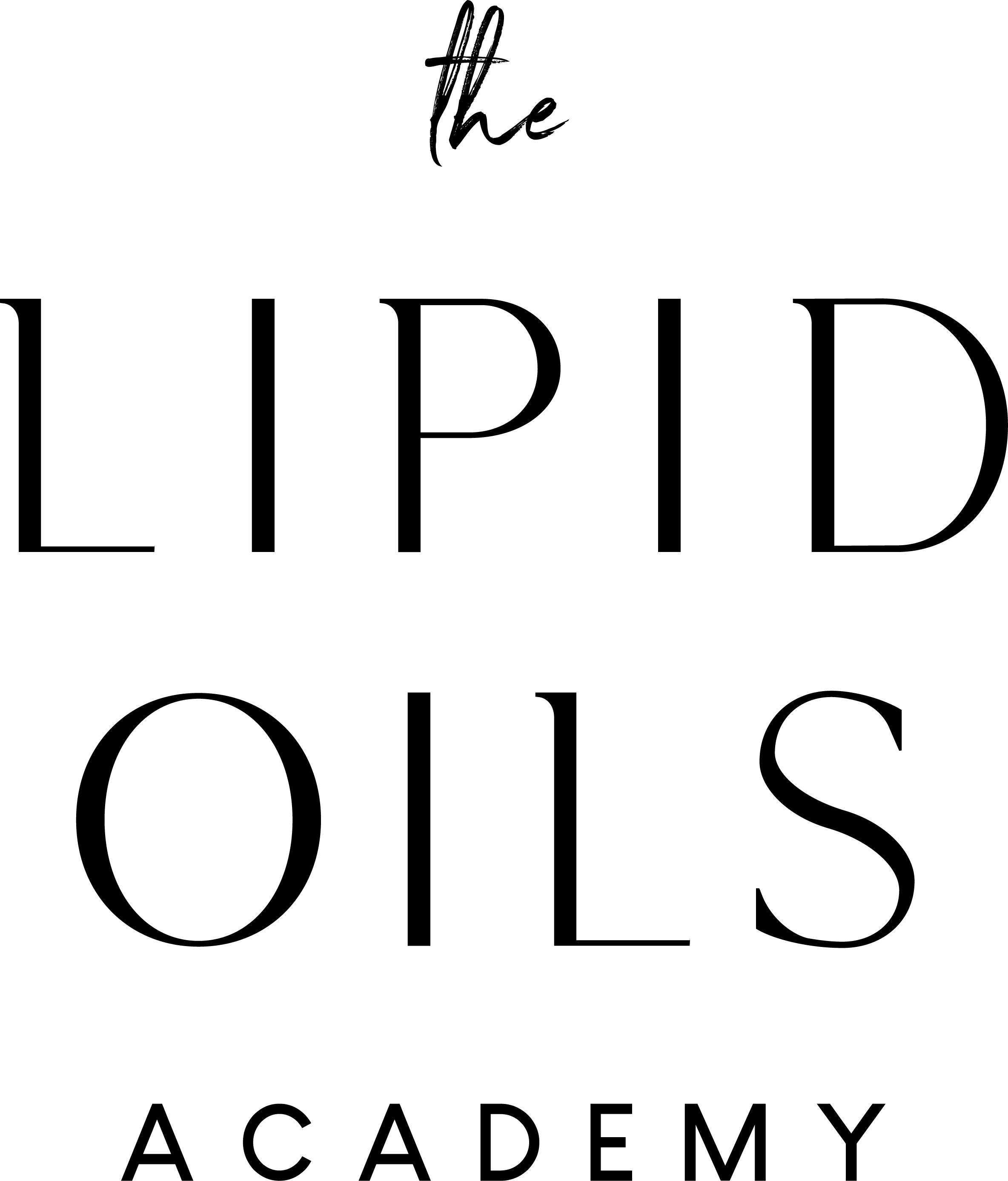
Thank you, Susan and Olivia! Is there a pdf available of this information? I truly appreciate what you do and the classes that you offer!
muy interesante y motivador para seguir estudiando sobre los aceites portadores, realmente es una actividad mágica y la exposición fantástica se agradece.
I’ve tried all on your list except for pear and fig. And now of course I’d like to try them out. How exciting that new oils keep becoming available.